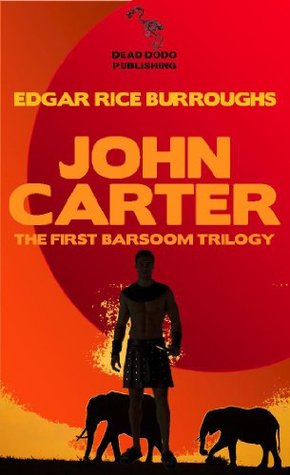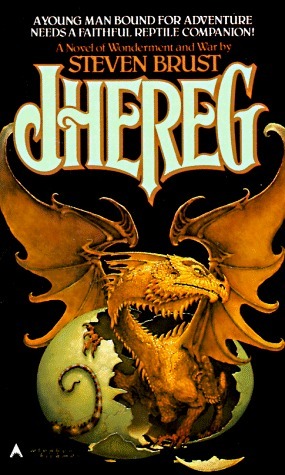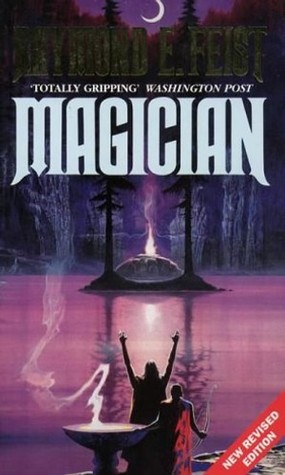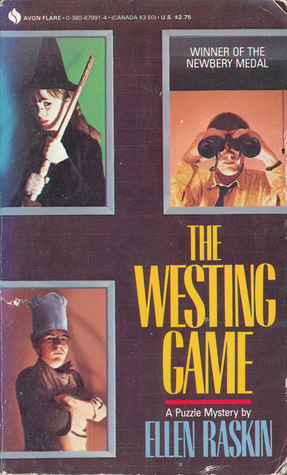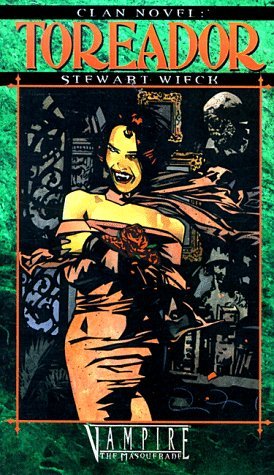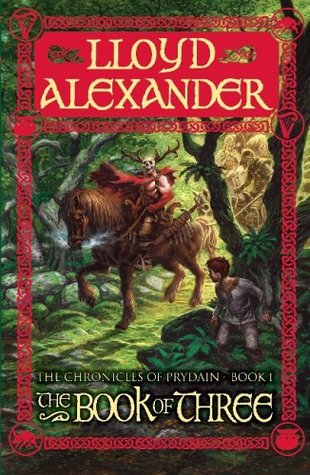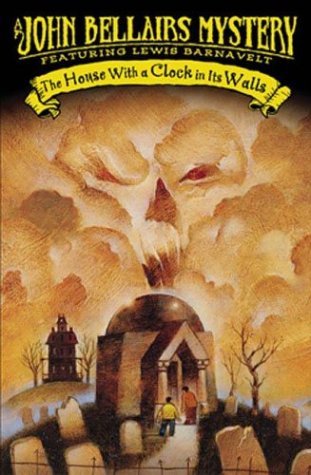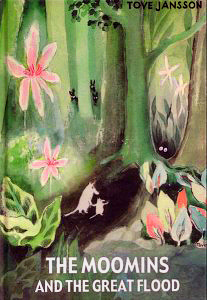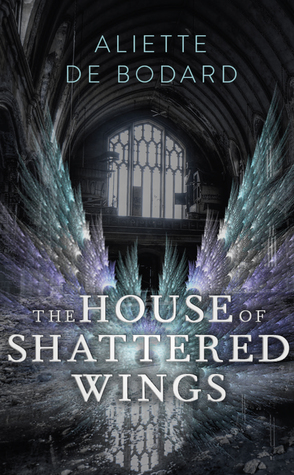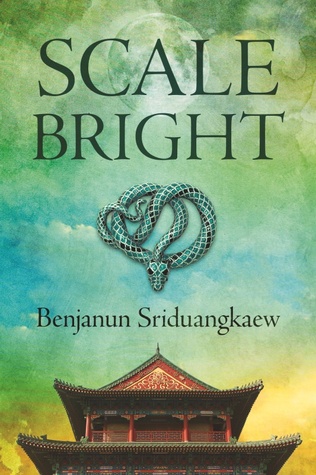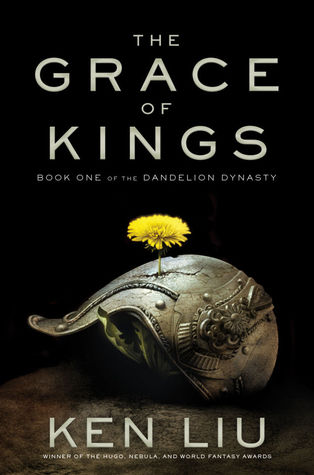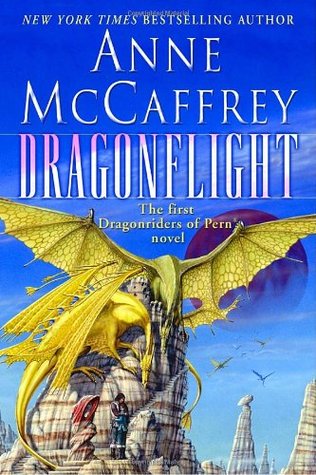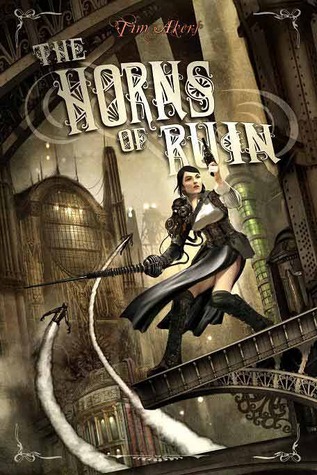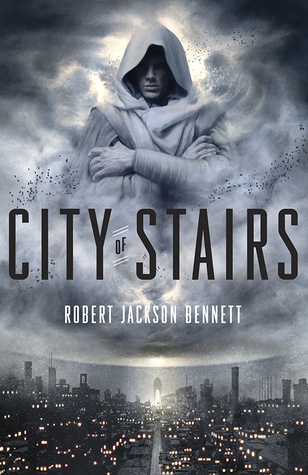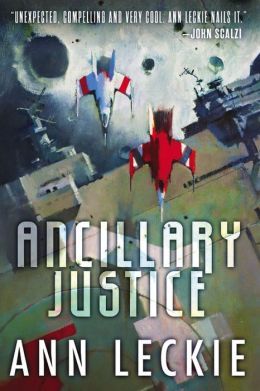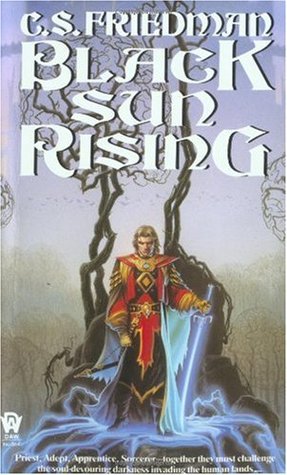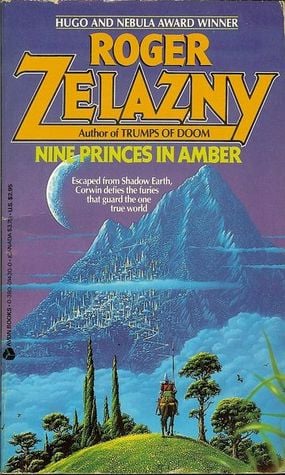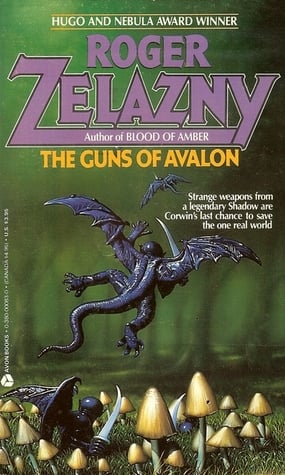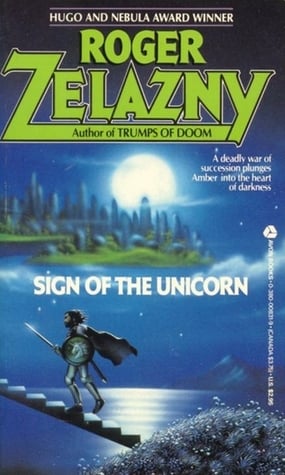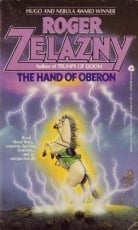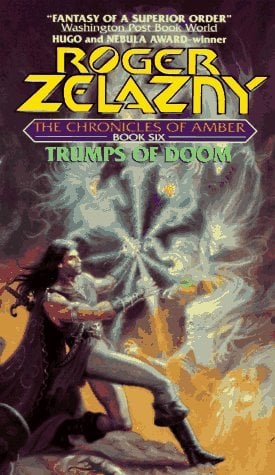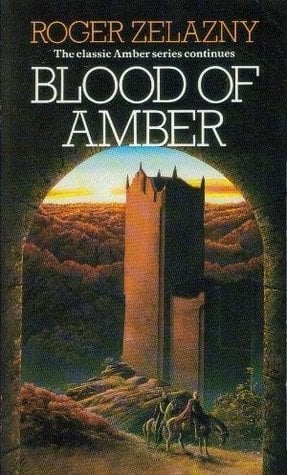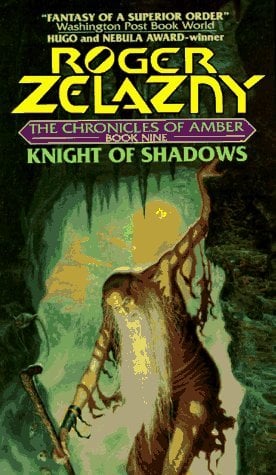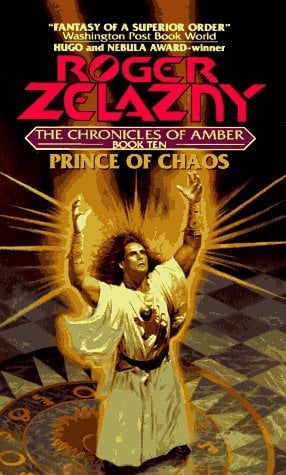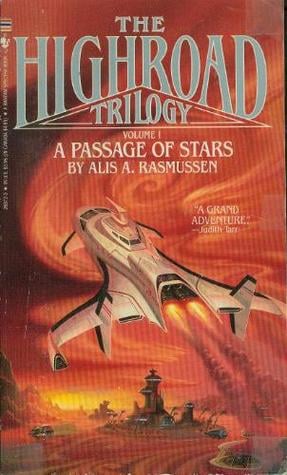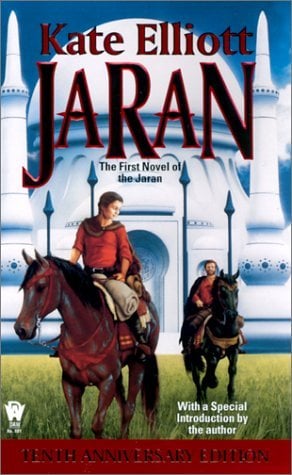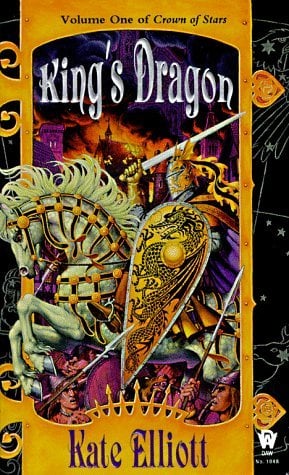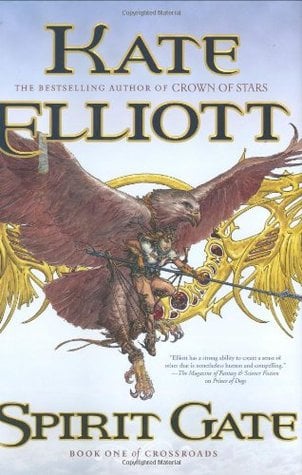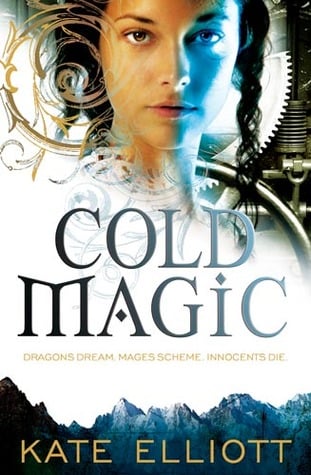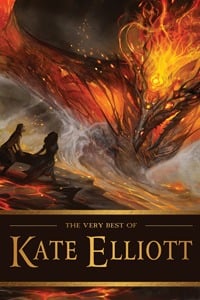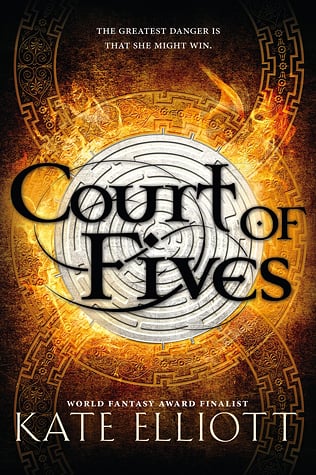29 - Making Worlds out of Words
This episode, Kip Manley (@kiplet), author of the acclaimed web serial The City of Roses, joins me to talk about this genre that makes worlds out of words and sharing stories with our children. Additionally, Charles Payseur returns to recommend three stories centered on cooking.
Kip's original post on this topic, and my post over at BookPunks about telling The Hobbit to Tadpole.
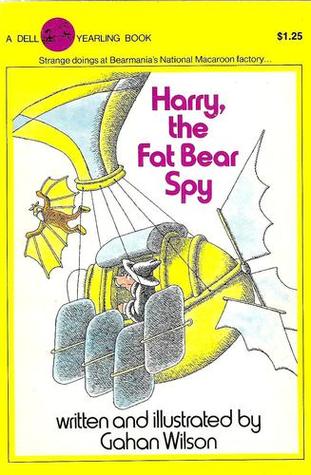
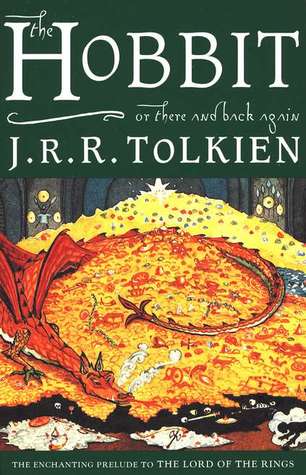
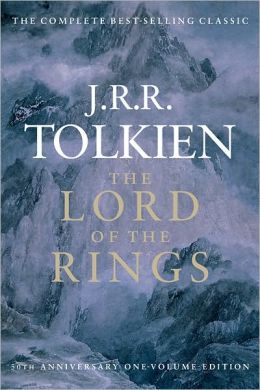
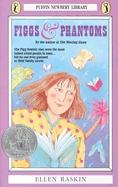

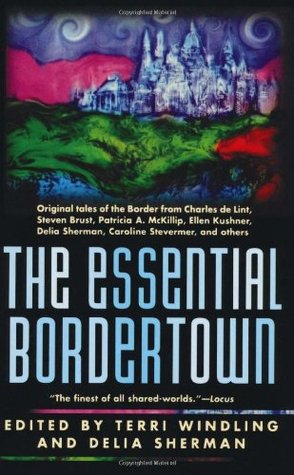
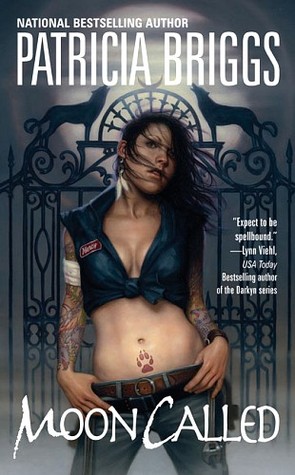
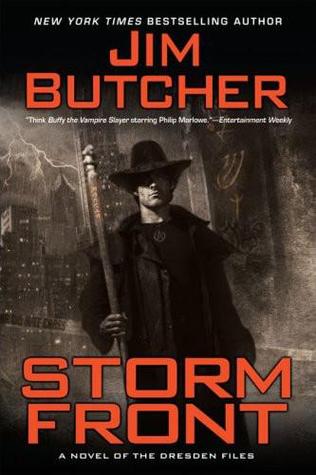
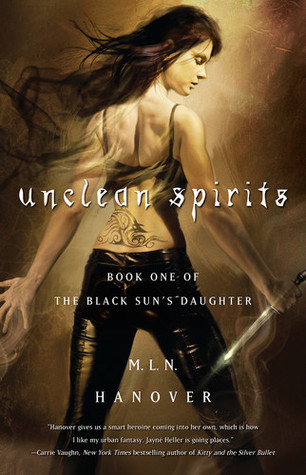
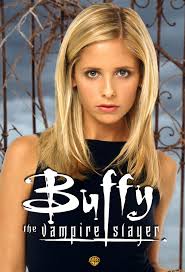
Story recommendations from @clowderoftwo
Farah Mendlesohn, Rhetorics of Fantasy (review & description of categories)
Fangirl Happy Hour on The Last Unicorn
Octavia Cade's series "Food & Horror" at The Book Smugglers
The amazing art which inspired me to actually get this project off the ground was created by@etrandem
Send feedback! Tweet me! Tweet the show! Be a guest on the show!
Music - Jazzy Ashes by The Underscore Orkestra
If you want to subscribe to the show, the RSS feed is: http://www.cabbagesandkings.audio/?format=rss
Transcript: JSM - Jonah Sutton-Morse (host)
KM - Kip Manley (guest)
CP - Charles Payseur (guest short fiction expert)
*Intro Music*
JSM - Welcome to Cabbages & Kings, the podcast for readers of Science Fiction & Fantasy, I'm your host, Jonah Sutton-Morse
*Interstitial
JSM - My guest this episode is Kip Manley. Kip is the author of the acclaimed and long-running webserial the City of Roses, which is published as a series of serialized novelettes. Kip also has a long history with the genre and a small child who he's been introducing to the genre & occasionally blogging about. And since I also have one small child, the four-and-a-half-year-old Tadpole is taking in some of the stories, although I haven't read very many things to her. Sprout is not yet at that stage, but I figured I would talk to Kip about introducing our kids to the genre and their relationships both to stories that we're telling & books that we're reading. So, Kip, welcome and thank you.
KM - Thank you very much, hi.
JSM - I will start by asking you to just tell us a little bit about how you came to Scienc Fiction & Fantays & some of the important books for you.
KM - It's difficult to pin a very first book. I mean one of the things that I remember is that my folks had a copy of the Hobbit & The Lord of the Rings, on the shelf. Little out of character for them, but they had them and I did ah read those at about the same time. We were living in Kentucky, very far out in the middle of nowhere. Trips to get books would be few and infrequent, but I had an enormous number, and one of them my mother comes back from Louisville or somewhere and she had a copy of the Foundation Trilogy, Isaac Asimov, of course, and a copy of The Grey King by Susan Cooper. Without any of the other books in the Dark Is Rising Sequence.
JSM - Oh, yes
KM - And I just I remember that particular dyad, or dyptych whatever you want to call it, very vividly. And the one that stuck, the one that just really sunk in, was the Grey King, that's what infected, that what took hold. Asimov just didn't stand a chance I guess.
But, I'm mentioning those two, but at about the same time I'm getting into the John Carter books, I remember also vague things, I think the cartoonist was Galen Wilsonwas illustrating a bunch of children's books at the time, Leonard Looney or something like that about aliens who live on the moon, and the adventures that they had, Harry the Fat-Bear Spy, all of these things are kind of coming together all at the same time. And it's making that sort of syncretistic mishmash of pulp, y'know the thing that isn't Fantasy, that isn't Science Fiction, that's just adventure stuff out there, away.
And, so that's what I got hooked on. But the Susan Cooper, the Asimov, those two it was almost like, you have a choice
*laughter*
Which door will you walk through? And I ended up going through the Susan Cooper door and so here I am a fantasist.
JSM - You chose the portal instead of the rocket
KM - *laughs* pretty much.
So that's kind of my origin story.
Oh just a good thing ... long car rides at this point, always taking books along, I also remember the Raymond Feist books
JSM - Yeah, I got
KM - Magician ... yeah
JSM - I think I read Apprentice & Master & then drifted away.
KM - It first came out as a single giant book and then they broke it up & I got it when it was a giant book because this was when Oh My Goodness This is a giant book!
And also at the same time Stephen Brust, but that's coming a little later.
And going all over the map here, and then again it sort of like, this in my head fits in the same category but is neither Fantasy nor SF, Ellen Raskin: huge impact. The Westing Game, Figs and Phantoms, The Mysterious Disappearance of Leon I Mean Noel, these books and they're all, I dunno making a world, making a world out of words., This was what was important
JSM - OK
KM - And I've gone all over the map.
There we go.
JSM - Are you primarily a genre reader, do you read omniviorously? Fiction, nonfiction?
KM - At this point, the vast majority of what I read at this point is online. I have books, I read books! But, the focus has been less on that lately, and part of that is just the way we live today, part of that is keeping up with the conversations that I'm interested in, a lot of that is research, the things I'm looking for it's easier to find online.
I don't have, or don't make as much time for, just sitting down to read a novel lately.
JSM - mm hmm
KM - Right now what I'm in the middle of reading is Sylvia Townsend-Warner's "Kingdoms of the Elfin" and I'm kind of parcelling that out , it's loosely connected short stories. And, published in the 1980's I think, the last book that she put out. It's just, I'll read one of these stories & then stop & feel utterly useless and bereft for a while because she is SOO GOOD.
The other thing I'm working through right now is I finally got around to reading David Gregor's Debt: The First 5000 years, I was reading that 3 or 4 years ago. So, I'm a little behind the times when it comes to the paper reading.
5:12
JSM - And did you have a period of leaving and coming back, or have you had sort of pivotal moments that have shifted what you were interested in & what you wanted to read?
KM - hmmm ... well I still am primarily interested in again those books that make worlds out of words for want of a better term.
(slightly pretensious)
genre *deep heavy sigh* ... it's such a big mess. *laugh*
I, like, for instance when I was first sitting down with City of Roses and then starting to realize OK I need to kind of get a handle on, take this as an example "Urban Fantasy", what's become of it, because what I started to think of it as and what I was dealing with it as was what had started to come out at the end of the 80s. War For the Oaks (Emma Bull), and the Bordertown books, Ellen Kushner, this sort of thing was what I was thinking of, and I start to look around and I discover of course that it has changed, changed & not changed, in the way that it will, and it's now more paranormal romance, that is what Urban Fantasy has become.
JSM - Right, when I think of it, that's what I think of.
KM - Right. and so I went through a period where I was : OK, I need to try to figure out what people are doing. And so I got The Mercy Thompson books, and the Jim Butcher Books, the Dresden Files, I got a couple of those. Jane Heller, these various Urban Fantasy Series and being dissatisifed with them, but at the same time, trying to pick them apart as an intellectual exercise to see what makes them tick, why they do what they do, and y'know starting to develop a sort of a theory of how it starts off in one place, this sort of growth of things coming vaguely horror, vaguely what ah Farah Mendehlson referred to as the intrusion fantasy all of that, and it's distorted by the dual impact of Buffy the Vampire Slayer and the Vampire: The Masquerade Role-Playing Game
7:18
JSM - So you were reading Urban Fantasy to try to figure out what Urban Fantasy had become.
KM - Yeah. So you have this dual reaction where on the one hand you have genre as a marketing category, which is sort of the thing that you know you say Urban Fantasy you immediately think OK it's got the book cover, it's got the woman standing with her back to us & you can't quite make out her face and she's y'know all of that is sort of predetermined, a marketing category.
And it becomes very constraining and very difficult to talk about or even enjoy something in that sense, because is it so determined. Defined. But at the same time, you can't talk about a work without talking about all the things that it's in conversation with: the genre that it's in. And, it's such a difficult tricky silly stupid word. But at the same time I come back to the fact that I'm trying to think of what unites all these things that I enjoy that aren't Science Fiction, that aren't Fantasy, or that are one or that are the other, but they're still the same thing, and what they do & how they work, and I have a very conflicted relationship with attempting to be able to generalize about them, particularize specific things, y'know it's the joy and the wonder of thinking about the thing you do.
You never come to an answer, you never come to a solution, you're always: I'm over here now and it looks different from this perspective and look at that, maybe I'll go over there next, and so
The question was: have I always been enamored of, or within, genre, to a certain extent yes I suppose from a very young age all the way up it's always been y'know I want the stuff beyond the fields we know, that thing, I'm going to go over there& see what happens next. And, while, one can't help but be impressed by, taken with books that don't do that, still it's not, it's not one of the primary impulse.
*Interstitial*9:17
JSM - Before I get to actually reading stories with our kids, Charles Payseur has three short story recommendations centered around cooking
CP - Hi everybody and welcome back. I'm Charles Payseur and we're going to be tlaking about some short fiction today. Today's topic: actually where my recommendations going is something that is near & dear to my heart: and that is cooking. And I love cooking so much. Cooking is one of my favorite things, food is one of my favorite things, and so these stories are like fairly recent and involve excellent uses of food & cooking in speculative fiction.
The earliest one of these that I want to talk about is from the sadly defunct Crosed Genres magazine. This one in their August Portals issue, which was an incredible issue. This particular story I feel like I almost overlooked to some degree because it was in the same issue as one of my favorite stories of the year. But this one: Where Do You Go To, My Lovely, but Yusra Amjad, is incredibly good. It is short, it is about a woman who can transport people with her food, and it's this back and forth between her and her nephew examining her powers and getting to the heart of what she's doing, and its an excellent examination of food's power to transport people to specific places and times in their memory and how that gets translates and how that sort of differs from person to person. It's an incredible story & I recommend you all go check that one out.
The second story that I want to talk about is from November's Clarkesworld magazine & it is So Much Cooking by Naomi Kritzer, and this story is one that is more like geographically near & dear to where I am because it takes place in the twin cities of Minnesota during a future where there's a pandemic and there is a disease that is sort of decimating, or at least has created a crisis and the form that the story takes is that of a mommy blog, which for anyone who gets a lot of recipes off of pinterest, you will know exactly what I am talking about and the story makes excellent use of that and in some ways shows about affluence and pandemic situation and shows this family sort of going through the scarcity and dealing with taking in more people, and it's just this rather wrenching story and examination of this one person as she sort of makes it through a very difficult situation with food. And how she relates to her world and how the food that she makes mirrors what's happening with her. The last story that I want to talk about is a story that was in the January very huge issue of Apex Magazine. This one is Soursop by Chikodeli Emelumadu. Which ... it is like rather difficult and very speculative, very imaginative, you get this future where all the soil has basically been pulled off of the earth and put on this ring that goes around where the wealthy lives, and everyone else who's been left behind as a sort of punishment for things that they've done, are forced to watch these cooking programs both as a way of sort of like giving them something to do because they can experience in part what's going on in the program but it's very good examination of how cooking can be an oppressive tool, and especially when you're looking at the last story to this one, you look at affluence when you do have this even scarcity in the last story, the ingredients being used, the way it's all been doing, and you come to this one where the same sort of thing, where a cooking show has beome this thing that people look to both as sort of an aspiring wanting to experience these things that are no longer available to them, wanting to be taken back to a time and place where they would've been able to enjoy the foods that they're seeing eaten, being able to experience them, being able to taste them. This is a very sensual story, meaning it uses the senses in very profound ways and it's just the another fairly short story, but there's so much worldbuilding that goes one and the character work with the experiences there are just very good.
If you're looking for more cooking related things, there's a lot, and Chikodeli Emelumadu who did Soursop has done quite a few, in fact if you want to go back as far as I believe June 2015 her story in One Throne Magazine, Soup, is probably one of the most disturbing cooking stories you will ever read, and at first seems like something where it's going to be "yes, it's cute, there's a talking fish!" which is the spoiler that I'll give for that. There is a talking fish and it is like charming and then you get to a certain point and you're like "oooohhh my god!"
And it's very good, so these are many different ways that writers use cooking to sort of convey place and convey culture and convey an attitude to examine memory and to examine where we are and how we related to our food which is very fundamental to our lives.
Further reading if you go to the BookSmugglers, Octavia Cade has an amazing series where she talks about food & reading and writing and very wroth going over there & checking those out, those are very dense, very long essays & lots to read there & lots to enjoy and if you're like me and ever want a very good cry, you could probably go to PBS & check out their tribute to Julia Childs. It is a very well done musical tribute to her using clips from a long time and I tear up every time I watch it, but especially in the context of a lot of these stories it's interesting to think of especially like that being used as a torture device.
That's all that I have for this month's recommendations. I wish you all bon appetit.
*interstitial music*
15:11
JSM - Now we are going to pivot because you are also a father of a child whose name comes from a beloved childhood fantasy book,
KM - Yes
JSM - what was it like to introduce Taran to the Lloyd Alexander books?
KM - Book of Three is the first.
JSM - OK. I encountered them at the library I think out of order.Did you start by reading the book to her, did you start by teliing the story? How old was she when you were, when she found out that there was this character that shared her name?
KM - Probably about 2 or 3. We had the books, we would talk to her a little bit about where her name came from, and the first book, we have a The Dell Yearling edition which has the cover that I had when I was a kid, you see Taran in his sort of Luke Skywalker looking tunic & leggings with his dagger drawn and Aurn the Horned King riding past with a great red cloak fluttering. It's a very striking cover on those books, a skull mask with the horns, and so she was taken by that. And explaining that the figure on the cover, Taran, that's who she was named after. We came up with the name, we had various different negotiations for talking about if it's a boy, if it's a girl, but we kind of fixed on the name very particularly very early on before we knew whether Taran was a boy or a girl. It was going to be Taran Jet
JSM - Going to be Taran and that would work either way
KM - Yep. And so it has. The name the problem for her of course we spell it as it's spelled in the book, T-A-R-A-N, and that getsa lot of people saying "Taraan", or, something along those lines, and she very indignantly corrects people: No, Taran!
JSM - Good!
*laughs*
KM - The first time that I actually tried to read Book of Three to her was when she was three and she actually came to me because she saw it & wanted to read about it. And that time she had an alternate persona, sort of, she was (sometimes) batmangirl
Because she was very into Batman from Brave and the Bold Cartoons - she'd watch those & she really like Batman. And so she wasn't batgirl she was batmangirl.
JSM - makes sense
KM - And batmangirl was sort of the figure who was there to do the difficult things that had to be done, which at this point included such things as potty training, and batmangirl was sort of the figure that she wanted to be, she aspired to be. And so she had the book and she was looking at it & looking at the figure of Taran on the cover of it, and she said this is the book about me, and I said Yes. I said that's Taran, that's who you were named after, and she says"Read it like it's Batmangirl!"
JSM - OK
KM - So y'know you get started & Batmangirl wanted to make a sword, but Coll, charged with the practical side of her education decided to make horseshoes. And you start to read that and you slip in batmangirl and you slip in she, and her, and it just made for an interesting reading experience that first time. And we didn't get very far that first time, mostly because she was 3 and there were no illustrations.
JSM - I have read the opening passage to The Tombs of Atuan 3 times.
KM - *laughs*
JSM - we have not gotten any further, but I've read the opening passage three times.
KM - We've since read several more chapters. We've moved on because we do bedtime reading still as a nightly thing. We are starting to work her way into actually working some chapter books into the progression. The first one that we finished was actually (it's another childhood favorite) was The House with a Clock in its Walls, by John Balares(?)
Taran was born on halloween. halloweed is a very very vital holiday for her of course, so we were talking about scary books and I was telling her about the scariest book I remembered from when I was a kid and so she wanted to read it, and so we actually we worked our way through each chapter every night. When we got to the point where they're actually summoning misses Izzard from the tomb, we got to that chapter she had to take a break.
And then the final chapter where there's the big confrontation, we had to take another break, but we stuck it out the whole book all the way through, and she was thrilled with it.
JSM - GOOD
*Interstitial Music*
KM - The Last Unicorn because she has seen the movie and loved the movie and loves the theme song and will sing it at the drop of a hat
JSM - *laughs*
KM - we have not worked our way through that but she found it very interesting with that one to listen to especially the opening chapter which maps somewhat onto the opening of the movie but there are differences, and so she started to point out the differences & so we started to talk about them & how that worked, and why movies do one thing one way and books do them a different way.
JSM - we've had that experience with the animated hobbit and the story of the hobbit that I have told her.
KM - laughs. I have not been able to interest her in the Hobbit yet. I haven't tried that hard. I am very leery of pushing books. The hardest I've probably pushed are the Moomintroll books, and those,she really likes the ah the cartoon of course, watches on YouTube,she likes the comic strips that we have, but we haven't really sort of worked the books in very firmly into any sort of rotation or discussion at all.
And I'm not sure what the resistance is on her part, we haven't talked about it much, again because I'm a little leery about pushing too hard, but at the same time, that's kind of my first taste of "why don't you love this thing that I love?"
JSM - I KNOW
KM - you apostate!
*Interstitial music*
KM - she's in first grade at a Japanese Immersion school, so she's spending half the day learning Japanese, half the day learning english, but she has a couple of times brought Japanese picture books home and read them to me, because of course I cannot read a single character, I am ... I can recognize her name now in hiragana, it's a little dangerous, we're teaching her a language that we don't speak or read ourselves, and she's already quite good at it!
But she took great pride in reading to me from a book about little group of acorns who make hats for all the woodland animals, and
JSM - That's great
KM - yeah, and then mocking me when I tried to follow along as she read, so her being able to do this, I could not, she is very pleased with that.
*Interstitial music*
KM - One of the things that she got into very early on because it was a book that we got her, she was maybe one or two, one of the first I think they came out, The Octonauts books, are you familiar?
JSM - I know the web series, I haven't read the books
KM - They started as children's books and we kind of got them because they were beautifully designed & very well done & so we were reading those to her from a very early age, and then the cartoon comes out, the toys start to come out, she's very interested in the toys, and then finally the cartoon comes to Netflix, so she can watch it,
JSM - Yep
KM - And it's full of animal facts which is something that she's just soaking up with the ... whatever she can get at this point. She's mainlining it, and she just watches this because it's information & she's soaking it up.
The Octonauts are a crew of 8 varied scientists & characters who are doing all of these things and when we had been reading them to her before, they're not the most well-devleoped, well-rounded characters in the world but still there's something to hang on each one and so of course voices develop for them.
You have professor inkling who gets the querulous old pedant voice and you have captain barnacles bear and he gets the hero voice and so y'know I'm doing the voices and I'm doing the voices as I'm reading them and she tells me, wait papa you're doing the voices wrong.
JSM - Oh do you have to do the voices the way they do them on TV now?
KM - We kind of compromised. She accepts the fact that basically her papa is imperfect and cannot do them exactly right.
*Interstitial Music*
JSM - Now do you do, do you do many sort of extemporaneous stories
KM - In terms of structured stories they come from books and movies. We have conversations, we talk about things and ... we spend time for instance, walking to and from the bus stop things like that & we're talking about what we see and it's not so much telling stories as it is spinning bits about them.
JSM - Right
KM - And where we're working in myth and science and everything so y'know we talk about the crows, we talk about what we know about them from science but we also talk about ah the murder of crows and what a scary thing that is and there's kind of a vague world building thing going on with the neighborhood faieries.
JSM - That sounds excellent
KM - There's a row of arboretae, which is an apartment complex for them, she knows where they all live, the holly, anytime you see a holly tree or a holly bush that's a faerie bank. And so we've talked about that.
So it's less storytelling and more worldbuilding if you wanted to y'know
JSM - mm hmm
KM - draw a net around it. The storytelling impulse, I mean, I get, so caught up or tangled in what it needs to do what it could do, what it might flop around and do a different way, it becomes very difficult to sort of extemporaneously sit down and tell a story.
So, it's that old thing with you know I wanted to write you a short note but I didn't have time so I wrote you a long one instead.
*Interstitial Music*
JSM - anything you're looking forward to on the horizon and saying "either I'm really excited about maybe getting to introduce this or I am kind of dreading when we have to talk about this sort of thing"?
KM - Tthe big thing for me right now the one that I don't ever want to push and want her to come to on her own would be Ellen Raskin, that I mentioned earlier, It doesn't work being read aloud, it's gotta be I guess secret discovered yourself. So that's something that's kind of a milestone that I'm looking forward to soon to come to.
JSM - Just kind of casually leave the book lying around & hope she picks it up and carries it off?
KM - Yeah
*Interstitial Music*
KM - One thing that I did have a lot of fun with Taran is something that I started to look for for kind of like sort of my birthday present to myself and also sort of her birthday present, or one of them, it was a book that I remembered from when I was 5 or 6 years old, one of the first books that I read at school and I can't at this point remember if I had a copy of my own, or if I just read the one at school until it was burned however hazily into my memory, but I did remember the title, I didn't remember who wrote it, I remembered the vague look of it, I remembered that it was about these two girls and one of them had a dog, a very lazy dog who got kidnapped or ran away and ended up in a dog food commercial
JSM - OK
KM - It was this thing that was sticking in my head, it was like this ur-reading experience from when I was very very small and so I found essentially a forum where people are describing books & other people are saying oh that's such and such by so and so, and I searched for the key terms and I found it. Something queer is going on a mystery by Elizabeth Leevy and Mordecai Girstain, and y'know found a copy, ordered it, got it, and just kind of holding it was one of those really, y'know Madeline moments. Here's this book that I haven't seen in years and I have it again in my hands and its exactly as I remember it. And reading it to her and talking about it to her, it's one of her favorites now. It's basically the two girls are Jill and Gwen and they're best friends and they solve mysteries and it turns out there's a whole series of them, they started off as being Something Queer books, and at some point somebody in Marketing said maybe we'd better change the title and so they ended up being called the Fletcher mysteries because Fletcher is the name of the dog. In this book at least there's a point where they figure out that the neighborhood nemesis, Fernbach, has ah stolen the dog, he's the one who makes commercials and he's kidnapped the dog for these dog food commercials.
So they're running away when they've figured it out, and they start chanting "I finger Feedler Fernbach for Filching Fletcher" is what they yell
JSM - *laugh*
KM - Feedler Fernback Filch Fletcher, Feedler Fernbach Filch Fletcher, it's just this wonderful rhythm thing again as we're reading along.
But there are other things, it was published I think in 1973, ok so a little later than I remember, but there's this marvelous point: basically the dog goes missing, the girls they go through the neighborhood, canvassing the neighborhood looking for him, and they determine that it must be Fernbach who took Kletcher, and they're figuring this out toward the end of the day and it's kind of getting late, and there's this really extraordinarily odd moment where it's getting dark, said Jill, my mother will be worried and so they're going to meet in the morning and follow him, it's this typical kids adventure story clock but immediately the problems arise: he's going to go to work in his car, we have school, and Gwen, who is kind of the sardonic sarcastic friend takes a moment and she has this habit of tapping on her braces whenever she's thinking so she's tapping on her braces, so she says "your mother's OK, isn't she", and Jill says "yeah, she's OK", well we need her to get ... and then they go & tell Jill's mother about this story. It's this really weird rupture in the genre. Because ordinarily of course a kid's adventure you have it as a kid, you don't go and drag in authority figures. They go to Jill's mother, Jill's mother is obviously it's set in West Chester Connecticut, Jill's mother works in the city, but she's also very obviously a single mother, Jill doesn't have another parent on the scene, and Jill's mother listens to this and says OK, yeah, I can get out of work, I'll write you a note to get out of school, and we'll follow Fernbach and find Fletcher.
*laughter*
And it's just this wonderfully, just this rupture of how the story is supposed to go and it, it was something that I hadn't noticed of course as a 5-year old, but something that really just boomed when I read it for the first time again. Woah, this book is doing something strange that stuck with me. Yeah, i dunno, it was pretty cool.
*Interstitial Music*
JSM - Each episode closes with a memory of a significant book. The right book at the right time, an interesting find, or just something that stuck around.
*Interstitial Music*
KM - Again talking about just sort of the raw elements of language. I don't *think* that it is a real true and legitimate memory, it's something that is kind of part of family lore. My sister was born when I was three and I would start to read to her when she was an infant, and I think a lot of what I was doing then was picking up a book and reciting what I remembered from it, although the family lore is that I learned to read when I was three years old, but I do roughly about the same time just have this memory of the page of Go Dog Go resolving itself into the words that my father was saying
JSM - Okay
KM - And its kind of like ok this is, this is like the moment when you figure out that those are words and that's what he's saying and that's how it works. I, again, don't trust it as an actual memory but I still have this sensation of that, a very specfic moment and very specific page on Go Dog Go
JSM - Actual trustworthy momory or not, that sounds pretty amazing and extraordinary
KM - So Go Dog Go has always been just another one of those books, OK that's totemic, it's on the shelf, so that's something again I read to her from a very early age, she's very fond of the hello hello do you like my hat, I do not like your hat, goodbye goodbye, she likes to, us to take turns reading those lines, so she'll be one dog I'll be the other dog, things like that.
JSM- Thanks for listening to Cabbages & Kings, please let me know what you think of the show!




